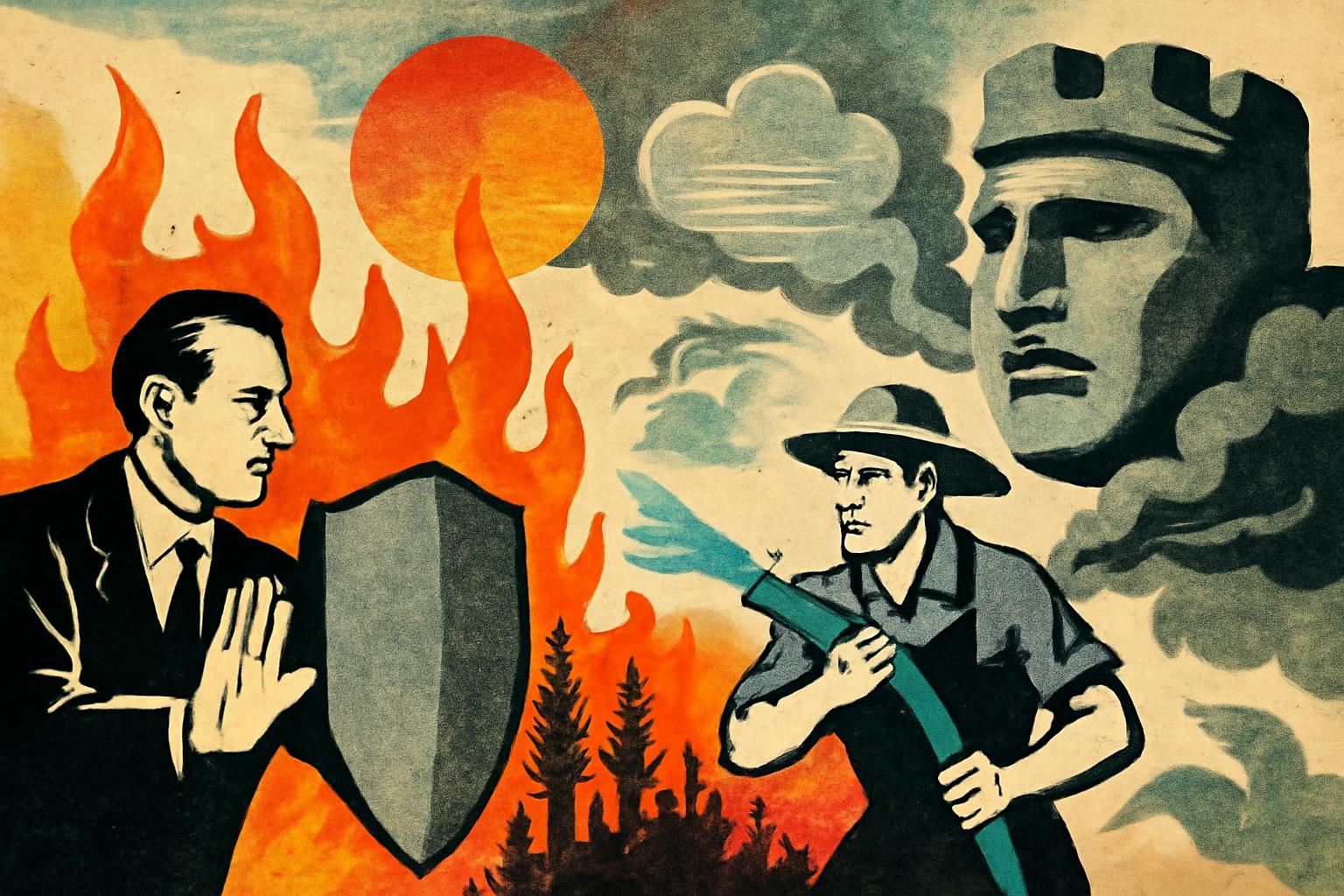The scale and speed of this heat and the fires reveal the brutal truth: centralized command and coercive emergency agencies are ill-suited to managing unpredictable, locally rooted disasters. Winds shift, humidity collapses, and information is scattered across countless private actors who know their own property, needs, and risks far better than any distant planner. Yet the state doubles down on control, pouring more resources into top-down command rather than unleashing the voluntary, rights-protecting order that actually adapts.
Hayek would say it plainly: knowledge is dispersed. No single authority can aggregate enough local, tacit information to run suppression, water allocation, or evacuation with any reliability. The more you try to choreograph from the center, the more you distort incentives and waste scarce resources. What works best in a crisis is decentralized action, guided by price signals, property rights, and voluntary cooperation. The heat and fire stress this point with brutal clarity.
Nozick would insist that the legitimate function of government is to protect individual rights, not to run disaster relief as a substitute for private associations. In a true night-watchman framework, the bulk of relief and risk management is handled by voluntary organizations, private charities, mutual-aid networks, and private firefighting services operating under voluntary contracts and liability rules. The state may be a backstop for coercive protection, but it should not crowd out the rivalrous, adaptive solutions that arise when people can freely contract, insure, and form private cooperative structures.
Rand would insist on moral responsibility and the primacy of individual rights. People should be free to protect themselves and their property, to insure against risk, to form private response networks, and to bear the costs of preparedness. State coercion—whether through blanket evacuation orders, water rationing, or blanket subsidies—undermines responsibility and cripples the very voluntary, rational self-interest that would incentivize better, more resilient preparation.
From that libertarian vantage, here are the constructive implications and policies that flow from principle rather than sentiment:
Fire response and risk management should be privatized or market-tested, not bureaucratized. Private firefighting firms, mutual-aid consortia among homeowners and businesses, and competitive private brigades can respond faster and tailor their tactics to local conditions. Insurers would price risk, fund prevention, and reward investments in defensive infrastructure like firebreaks and fire-resistant building methods. Centralized fire brigades become a complement, not a replacement, for private networks.
Property rights and liability as the backbone of resilience. If owners bear the costs and benefits of their risk choices, they will invest in prevention, safer materials, defensible space, and insurance. Clear liability for arson and negligence aligns incentives to deter causes of spreading fires, while due process and private adjudication protect rights without expanding coercive state power.
Water and resource allocation through voluntary, market-based means. Drought and scarcity should be governed by tradable rights, property-based entitlements, and price signals rather than top-down rationing. When markets price scarcity, efficiency improves and parties trade to where the marginal value of water is highest, minimizing waste and coercive disruptions to livelihoods.
A reduction of regulatory friction that slows response. In crises, speed matters more than conformity with top-down plans. Streamlining permits, removing outdated licensing hurdles, and allowing private entities to operate across borders or jurisdictions in a voluntary framework increases flexibility and resilience.
Arson investigation and justice anchored in due process, not state scripts. The state should enforce rights and ensure fair processes, but it should not crowd out private investigators, civil remedies, and voluntary accountability that can often operate more quickly and transparently.
Climate risk management embedded in local knowledge, not federal mandates. Recognize that people and communities will innovate in response to risk. Encourage experimentation, informality where appropriate, and competition among private providers to improve resilience, rather than imposing universal, one-size-fits-all regulations that stifle innovation.
The fires and heat tests reveal a civilization that relies on coercive planning more than on rights-respecting, voluntary cooperation. A Hayekian reality check shows that dispersed knowledge delivers better outcomes when people own, manage, and bear the consequences of their decisions. A Nozickian framework asks: what is the rightful role of government, and how can relief be organized without eroding liberty? A Randian ethic demands that individuals defend their own lives and property and that charity and mutual aid arise from voluntary choice, not fiscal coercion.
Short version: resilience to heat and wildfires comes from empowering private property, voluntary cooperation, private risk management, and minimally intruding institutions, not from expanding state control. The only policy system that matches the reality of dispersed knowledge and individual responsibility is one that narrows the prerogatives of the state and unleashes a robust, competitive, voluntary order for disaster response.
